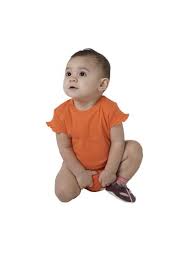
Author: James V. Lunden
As baby's delicate feet grow and she learns to walk, most doctors believe it is best that she wears soft-soled baby shoes. Hard shoes can be restrictive and cause discomfort, limit growth, and make walking difficult. It is thought that babies should stick to soft shoes up until age 2, when they can begin to wear harder shoes. Some doctors even think babies up to age 2 are better off being barefoot.
Rigid shoes can prohibit growth and damage the baby's foot. For this reason, soft-soled baby shoes are preferred because they are protective but delicate, giving the infant a sense of footing while allowing them a sense of freedom. The softer shoes are believed to allow your toddler to walk better and prevent them from falling down as much. They are available in many styles and colors to allow for many options to go with all of baby's clothing.
It's important as the toddler grows to give her the proper support. Wearing rigid shoes can damage the baby's delicate feet and make walking difficult. Soft-soled baby shoes are typically made of leather or cloth and will give baby the proper support to allow her to learn to walk correctly. Giving your baby the proper footwear is crucial to their development. Soft shoes will give baby the support she needs and the freedom she'll love.
The many options of soft-soled baby shoes make it easy for parents to find a shoe that will work perfect. Doctors recommend them over hard shoes because of the damage the more rigid shoes can cause to baby's delicate feet. With the importance of developmental growth in baby's early years, parents are wise to follow the advice of doctors and stick with the softer shoes for their baby. Keeping your baby's feet healthy and happy will allow her to be running in no time.
Learn more about soft baby shoes at our baby health care website.
Article Source: http://EzineArticles.com/?expert=James_V_Lunden
Other Related Pages:
Baby Boy Shoes
Baby Girl Shoes
Article Source: http://EzineArticles.com/4883216
As baby's delicate feet grow and she learns to walk, most doctors believe it is best that she wears soft-soled baby shoes. Hard shoes can be restrictive and cause discomfort, limit growth, and make walking difficult. It is thought that babies should stick to soft shoes up until age 2, when they can begin to wear harder shoes. Some doctors even think babies up to age 2 are better off being barefoot.
Rigid shoes can prohibit growth and damage the baby's foot. For this reason, soft-soled baby shoes are preferred because they are protective but delicate, giving the infant a sense of footing while allowing them a sense of freedom. The softer shoes are believed to allow your toddler to walk better and prevent them from falling down as much. They are available in many styles and colors to allow for many options to go with all of baby's clothing.
It's important as the toddler grows to give her the proper support. Wearing rigid shoes can damage the baby's delicate feet and make walking difficult. Soft-soled baby shoes are typically made of leather or cloth and will give baby the proper support to allow her to learn to walk correctly. Giving your baby the proper footwear is crucial to their development. Soft shoes will give baby the support she needs and the freedom she'll love.
The many options of soft-soled baby shoes make it easy for parents to find a shoe that will work perfect. Doctors recommend them over hard shoes because of the damage the more rigid shoes can cause to baby's delicate feet. With the importance of developmental growth in baby's early years, parents are wise to follow the advice of doctors and stick with the softer shoes for their baby. Keeping your baby's feet healthy and happy will allow her to be running in no time.
Learn more about soft baby shoes at our baby health care website.
Article Source: http://EzineArticles.com/?expert=James_V_Lunden
Other Related Pages:
Baby Boy Shoes
Baby Girl Shoes
Article Source: http://EzineArticles.com/4883216
 RSS Feed
RSS Feed